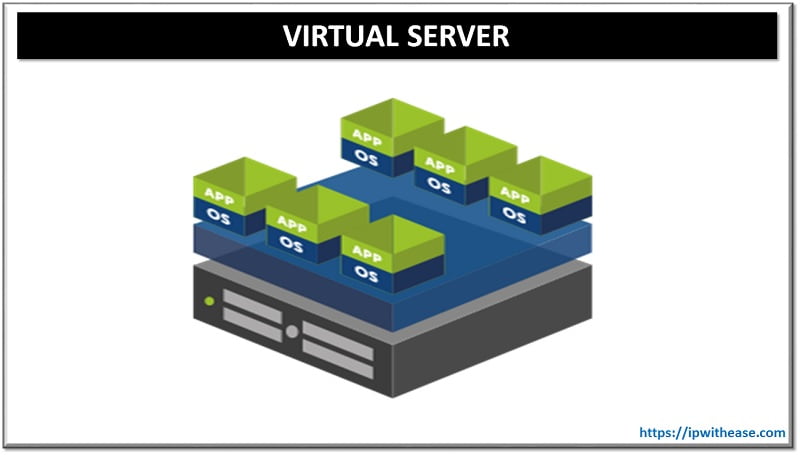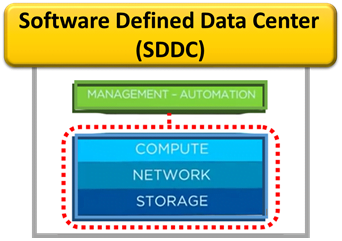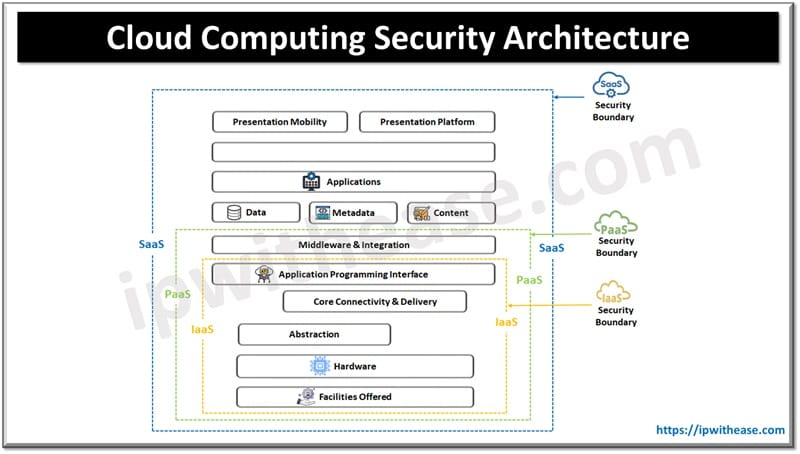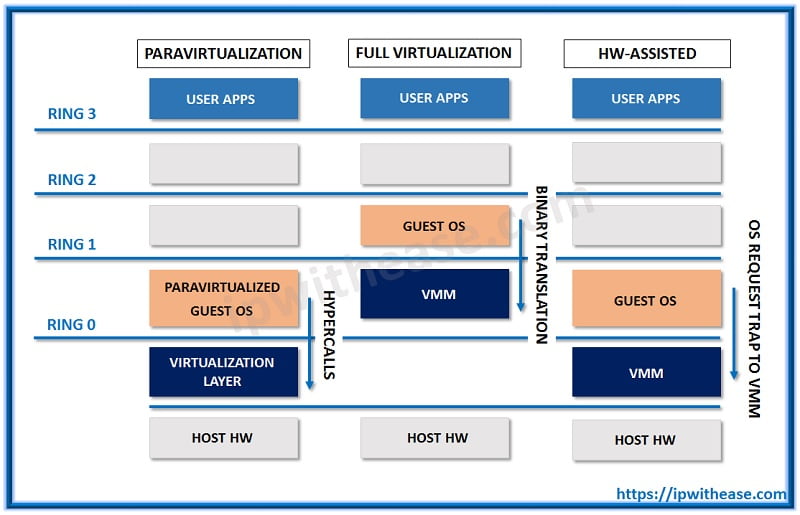Virtual Server
A Virtual Server is a server that shares hardware and software resources with other operating systems (OS). Since Virtual servers are cost efficient and provide quicker resource control, virtual servers are popular in Web hosting environments. Rather than implement multiple dedicated physical servers, several virtual servers may be implemented on one server. A virtual server looks like dedicated server to the end user.

Each virtual server is designated a –
- Separate OS
- Software and
- Independent reboot provisioning.
Virtual Web servers are a very popular way of providing low-cost web hosting services.
An overflow of virtual servers in a physical machine may lead to resource hogging, and if a virtual server uses more resources than another, performance issues usually result.
Benefits of Server Virtualization/ Virtual Server :
- Cost reduction: CAPEX and OPEX both are benefited by server virtualization. With virtual servers, it is possible to cut cost on the infrastructure that you would need to install and maintain physical servers at the workplace. In other words, not only do you cut down on the initial capital investment that is required to buy and install the infrastructure, but also the added working cost that is necessary for maintaining it at top working quality.
- Better utilization and increased productivity: Setting up virtual servers will greatly reduce space and help in scope for more productivity. Reason – Virtual servers are mostly utilized 80% of their capacity as opposed to physical servers which normally reach up to 15-20 % on resource utilization. Hence, consolidation of application reduces number of servers and increase overall productivity with virtualization
- Reduce hardware vendor lock-in: While not always a bad thing, sometimes being tied down to one particular server vendor or even one particular server model can prove quite frustrating. But because server virtualization abstracts away the underlying hardware and replaces it with virtual hardware, data center managers and owners gain a lot more flexibility when it comes to the server equipment they can choose from. This can also be a handy negotiating tool with the hardware vendors when the time comes to renew or purchase more equipment.
- Increased uptime: Thanks for Features like vMotion, DRS and VMware high availability – all result in virtualized servers being up and running so much more than those same servers that were running directly on physical hardware.
- Faster server deployment. Since virtual servers can be standardised, they can be easily replicated, allowing one to deploy them faster. This results in a more efficient and faster speed to market.
- Improved efficiency. With fewer servers in your data center, virtualization technology provides for better space management. The subsequent drop in power consumption improves efficiency and saves money.
Continue Reading:
What is DNS (Domain Name System)?
Configuring Connectivity Between Ghost Server & Client Across VLANs
ABOUT THE AUTHOR

You can learn more about her on her linkedin profile – Rashmi Bhardwaj



